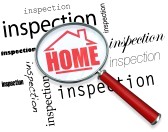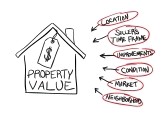 There’s nothing like it. “It” being the feeling that you have when after finding the perfect house, making an offer that the seller agrees to and in your mind believing that you’re just weeks away from moving into your new home.
There’s nothing like it. “It” being the feeling that you have when after finding the perfect house, making an offer that the seller agrees to and in your mind believing that you’re just weeks away from moving into your new home.
Except there’s a (potential) catch. Before you are able to officially declare the house as your own, a professional home inspection must take place. Although that takes a bit more time, honestly, that works in your favor because if the repair list amendment cites that the house has things like plumbing and electrical issues, that the roof needs to be replaced or that there is a problem with the heat and air unit, this means that you need to go back to the drawing board with the seller to renegotiate a new price.
If you’re curious about how to go about doing just that, we have provided a few things that you should keep in mind as it relates to the seller and also to you as the potential buyer:



